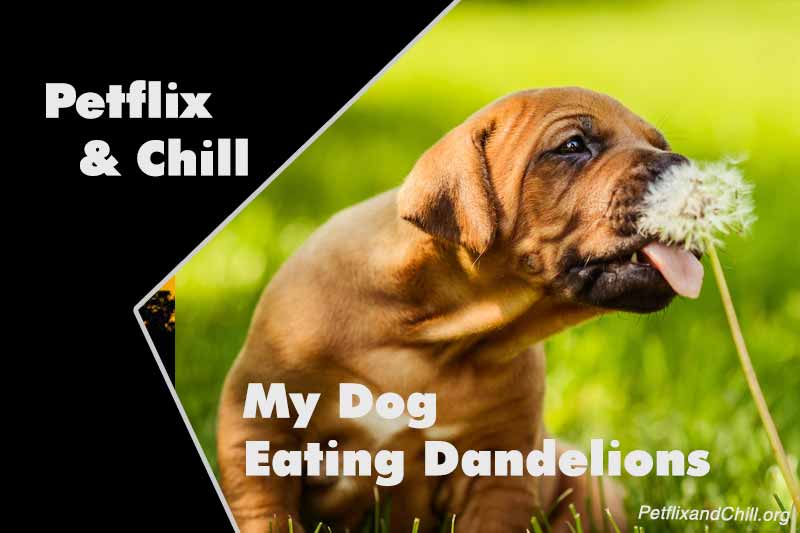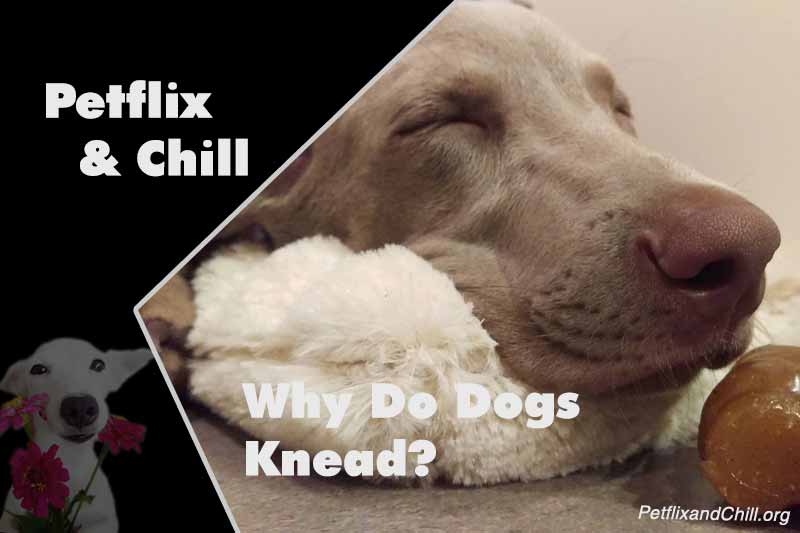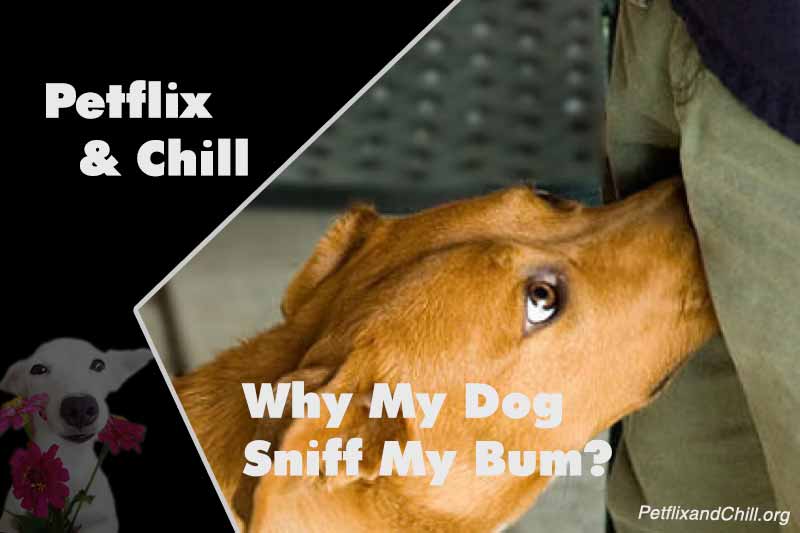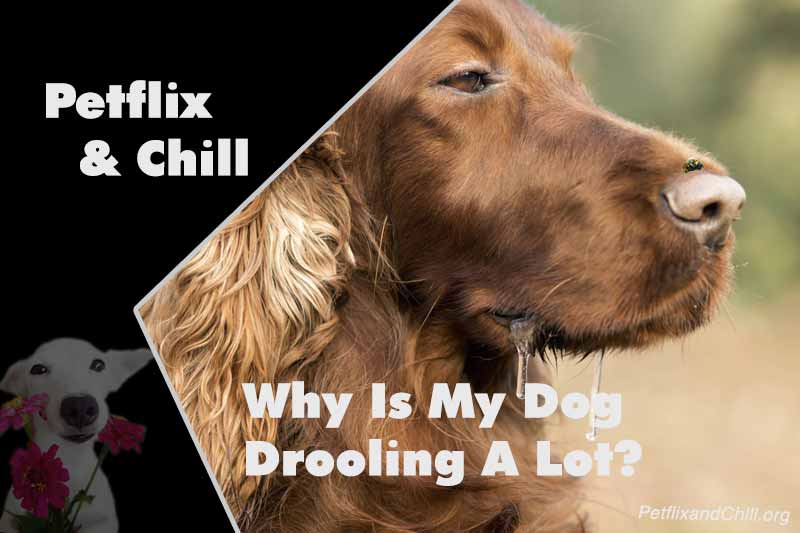Why is my dog eating dandelions? This behavior seems odd, but many canines may nibble on these yellow flowers for more than just fun. Some dogs like the taste, while others may seek the plant’s health benefits. If you are concerned about this curious habit, scroll down this Petflix‘s article to explore why dogs do this and when it’s time to step in or let them be!
Why Is My Dog Eating Dandelions? Potential Reasons
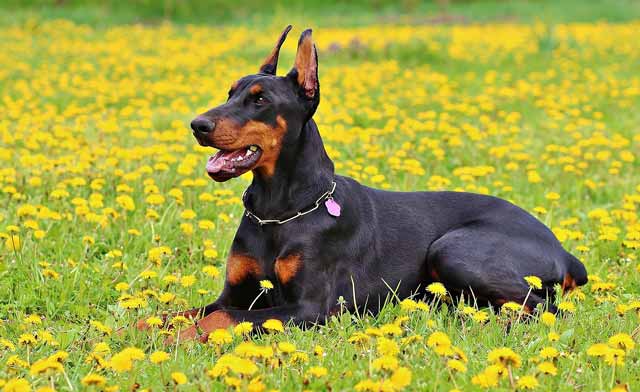
Can dogs eat dandelions? The short answer is yes! These simple plants are safe for canines to consume, but not all parts. But why does your dog keep eating them? In fact, there are no evident scientific reasons behind this behavior. This habit is just similar to grass-eating, which may support digestion. In some situations, your pup may like the texture or taste of these flowers.
In general, it’s usually harmless when your dog suddenly nipples these bright yellow weeds in the yard. However, you should know what advantages or risks may relate to this munching habit. Below are the health benefits dandelions bring to your pets:
Anti-Inflammatory
Traditionally, people have used dandelions as natural remedies to lower inflammation and ease pain. That’s because these plants contain polyphenols, which have potent anti-inflammatory properties.
Moreover, they include alkaloids, terpenoids, and flavonoids that contribute to their inflammatory qualities. According to research, the dandelion’s natural anti-inflammatory components are present in all plant sections, but the blossom is particularly advantageous.
Antimicrobial
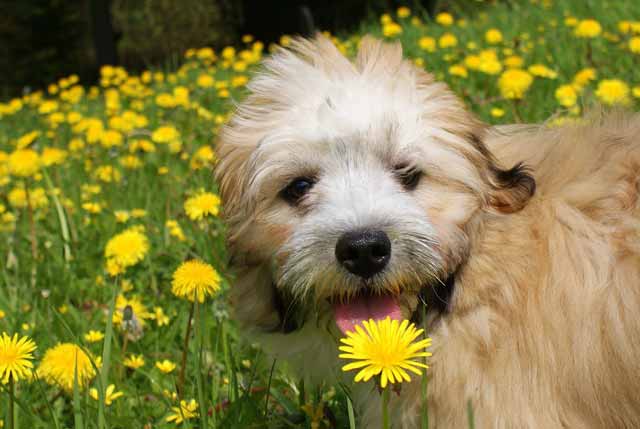
Dandelions can combat infections when they are made as a wash or tee. If your dog has an injury, simply apply a towel soaked in it to the wound. The root and bloom are the most beneficial parts of the dandelions, but the entire plant possesses these qualities.
Digestive Aid
Dogs with gas or persistent indigestion might benefit significantly from dandelion leaves. Give your dog some dandelion before the meal. It helps with digestion by stimulating the digestive fluids and appetite. Additionally, dandelion root includes prebiotic properties. It can help your pet’s gastrointestinal health by supplying probiotics (good bacteria).
Antioxidant
Dogs may develop health issues, such as cancer, heart disease, dementia, arthritis, and other autoimmune illnesses, if their bodies are unable to handle the excess of free radicals.
Antioxidants, which combat free radicals and help prevent illnesses, are abundant in dandelion blooms and leaves. They also slow down aging and strengthen the defenses against infection.
Diuretic
Fluid retention in dogs can result from conditions such as diabetes, renal and gallbladder illness, heart failure, and enlarged tissues. As a diuretic, dandelion leaves help the pet’s body rid itself of excess fluid. Also, dandelions are high in potassium. This substance helps your canines replenish the potassium depleted by frequent urination.
Liver Tonic
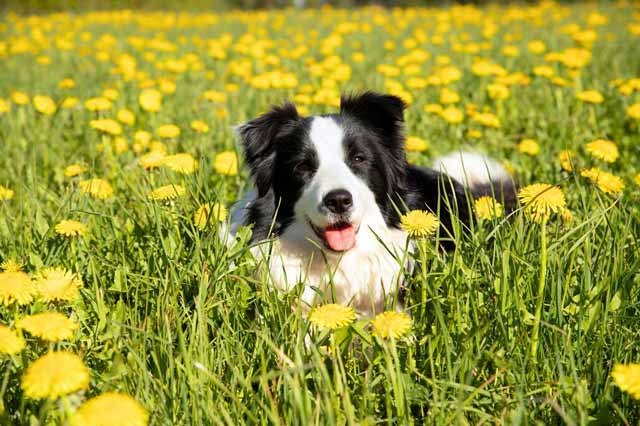
Dandelion root is a tonic for the liver to promote bile synthesis and improve liver circulation. It supports the kidneys’ removal of waste and poisons from your dog’s body. In addition, dandelion roots aid in treating gallstones and gallbladder irritation. Consider feeding your pooch dandelions if you notice dandruff, skin conditions, or persistent constipation.
Hypoglycemic
Dogs with diabetes mellitus develop insufficient insulin production by the pancreas. Your dog’s effective use of proteins, carbohydrates, and lipids depends on insulin.
Dandelions are hypoglycemic herbs that may help control diabetes. They raise insulin sensitivity and lower blood sugar levels. You can feed your pet dandelion to help manage diabetes. Always consult with a veterinarian before using the plant.
What Dandelion Parts Can Dogs Safely Eat?

Similar to other plants, dandelions have both edible and inedible parts. The sections listed below are the most nutritious and safe to give your furry friend.
- The flower: Can dogs eat dandelion puffs? Yes! The dandelion flowers possess antioxidant qualities. It is excellent for preventing chronic illnesses in dogs brought on by inflammation and free radicals. Also, the flower has antibacterial properties.
- Leaves: They contain a lot of potassium and other minerals and vitamins. They also work as a diuretic, improve antioxidants, and aid in digestion for your pets.
- Roots: Dandelion root for dogs: benefits include treatments for stomach and liver conditions. Both raw and cooked dandelion roots provide your canine with a significant amount of nutritious value. However, because dandelion roots are coated in filth, you must clean them thoroughly before feeding your dog.
Note:
You should keep your pets away from the stem. Its flavor isn’t good. Additionally, the sticky white substance contains latex and may have laxative properties.
Potential Risks Of Dandelions For Dogs
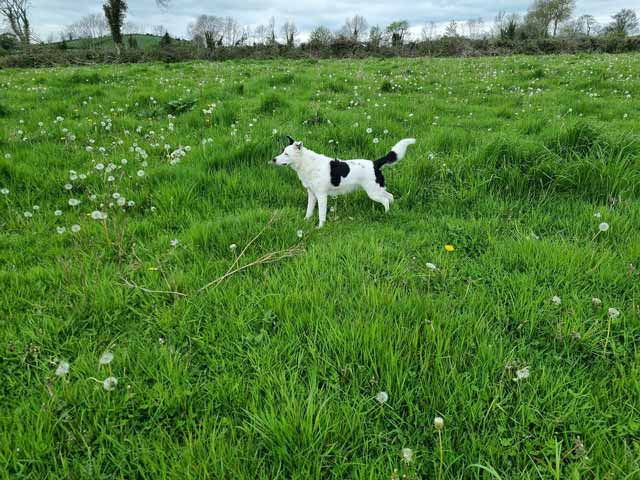
As mentioned above, not all parts of the plant are risk-free. So you must watch for possible dandelion root for dogs’ side effects, especially if dogs eat them often or in large amounts.
Pesticide Poisoning
Many dandelions in certain regions may be treated with herbicides and pesticides, which are highly poisonous to dogs. Before you give your pet dandelions, you must know where they originate.
Digestive Upset
Your dog can have a dietary sensitivity to dandelions, even though clean, fresh plants aren’t poisonous. Indigestion, vomiting, and diarrhea are among the symptoms you may see if they happen.
Choking Hazard
Small canines are particularly vulnerable to choking hazards from the white puffs. The best way to give your pet dandelions is to take them out first.
Constipation
Even if it’s not a frequent issue, it is possible. Excess dandelions might clog the canine’s digestive system and constipate them. The best course of action if your pet experiences this problem is to get in touch with your veterinarian. Constipation can be promptly addressed, but if not, it might result in more severe health issues.
What’s the Recommended Serving of Dandelion for Dogs?
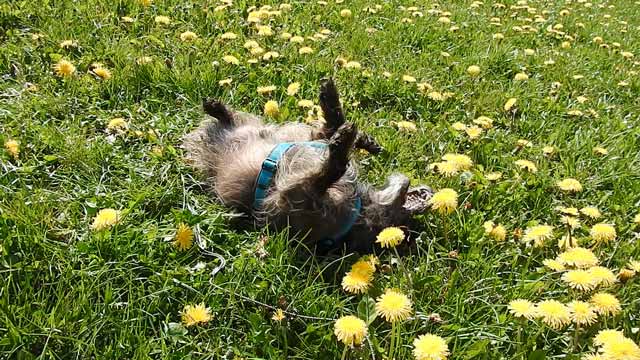
Dogs can eat as much dandelion as they like, and if your pup loves eating grass and foliage, it may consume a lot. However, like overconsuming vegetables or plants, eating excessively dandelion might irritate the stomach.
If you want to use this plant as a natural cure, you should consult your veterinarian about how much is safe for your pet’s needs and the proper dose. Each product has a different safe dosage for pills, dried herbs, and tinctures. The appropriate dosage depends on the canine’s weight.
How to Stop Your Dog from Eating Dandelions (If Necessary)
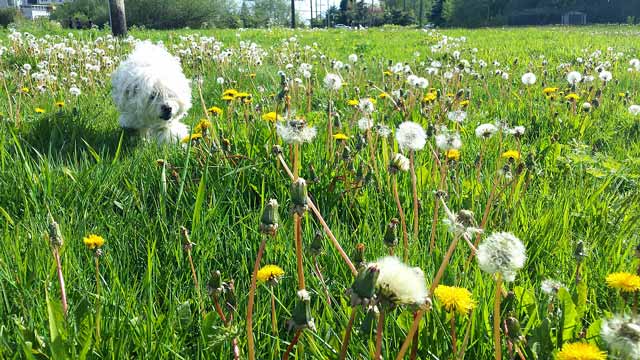
You shouldn’t try to stop your dog from eating dandelions if you know these plants aren’t sprayed with weed pesticide. However, it may be beneficial to teach your dog the command so that you can prevent them from consuming any potentially harmful plants.
Always use positive reinforcement during training. Instead of penalizing your pup for attempting to consume the undesirable plant, reward it when it leaves the flowers. If you can’t teach your canine the “Leave it” command, you should keep it from the plants to avoid unwanted problems.
Please refer to more pet care knowledge at Petflix
In A Nutshell
So, why is my dog eating dandelions? Most of the time, it’s a harmless and beneficial behavior. Dandelions can offer health benefits like aiding digestion and supporting the liver. However, you should still avoid harmful parts and watch for the side effects. Monitor where the plants come from. When in donut, speak with a vet to keep your pup safe and healthy!

